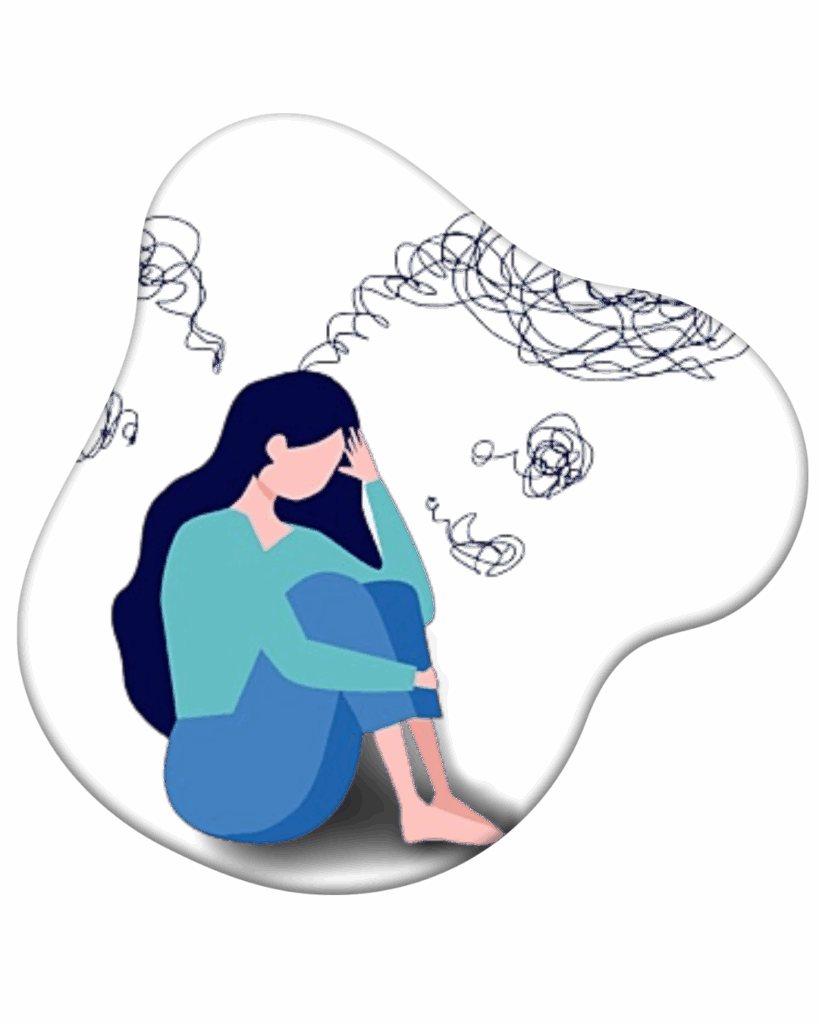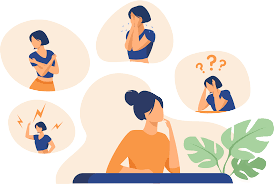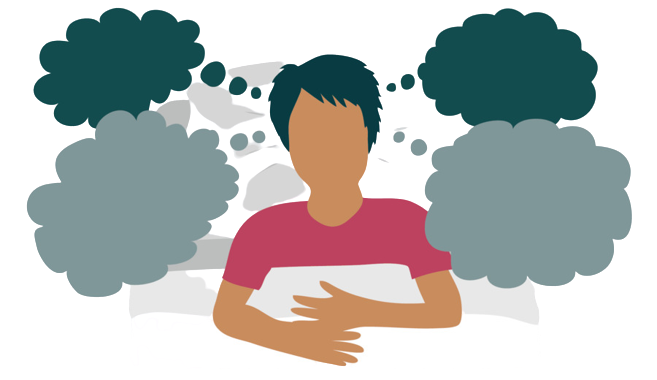What is Anxiety?
Anxiety can be defined as a physiological response through which the body prepares to face a situation perceived as dangerous. In other words, anxiety is the physical sensations (such as rapid heartbeat, sweating, muscle tension, etc.) that arise when we feel threatened, in danger, or that something bad is going to happen.
Why Does Anxiety Exist?
From the perspective of an evolutionary psychologist, anxiety, like all emotions, originated with the purpose of survival. Considering this, the origin of anxiety is to prepare the body to escape from danger. That’s why we experience sensations like sweating, rapid heartbeat, and muscle tension.
Is My Anxiety Normal?
Experiencing anxiety is a normal response that all human beings have encountered at some point in their lives. However, sometimes these sensations begin to cause problems. A psychologist will need to evaluate these situations. Below are some points you can identify to better understand your anxiety.

These situations usually occur when the symptoms I’m experiencing are too intense and prevent me from acting adaptively. In other words, we are unable to do what we need to do.
Another way to know if my anxiety is normal is by identifying how often it happens. If these sensations occur several times a day and with minimal triggers, it is likely that we are experiencing an anxiety problem.
Finally, if my anxiety lasts for several hours and I cannot relax, it is possible that my anxiety is not normal.
Anxiety can also appear as restlessness, distress, excessive worry, dread, panic, fear, anguish, phobias, etc. If you feel that your anxiety is significantly affecting your life, click this link to schedule a free consultation session.
How Do I Know If I’m Experiencing Anxiety?
There are several symptoms of anxiety. In this list, you can identify the most common physical symptoms:
Dizziness
Rapid heartbeat (tachycardia)
Sweating
Palpitations
Tremors
Digestive discomfort
Increased frequency and urgency of urination and/or dizziness
Fortunately, these symptoms can be managed through relaxation exercises. If you want to feel calm in your body, click this link to schedule a free consultation session with your online psychologist.
Anxiety and Behaviors
Often, when we experience anxiety, our tendency is to avoid these situations. Many times we feel the urge to escape events, but when they happen again, we experience anxiety once more. Also, when we experience physiological symptoms, they can lead to avoidance behaviors to flee from danger. However, often fleeing prevents us from learning how to manage anxiety, and these situations generate anxiety and these physiological responses.

The word perceived is highlighted because the perception of danger has a great influence on anxiety. Often, our thoughts tend to be more catastrophic than what actually happens. That is why thoughts play a very important role in anxiety.
Some anxiety-triggering situations can include speaking with a boss, taking an exam, a medical procedure, test results, physiological symptoms, work presentations, etc. Some of the thoughts that arise in these situations are: “I’m going to get scolded,” “I did something wrong,” “I’m going to fail,” “Something will go wrong,” “I’ll have a problem if I stay here,” “They’ll make fun of me,” “They’ll judge me,” “I’m not capable.”
Fortunately, these thoughts can be changed through cognitive techniques. If you want to learn to control your thoughts, click this link to schedule a free consultation session with your online psychologist.

The cognitive behavioral psychologist works on the premise that distorted thoughts have a significant influence on anxiety. That is why it is vital to identify and correct these distortions. Through therapy, you will learn to recognize and modify those thoughts that can lead to excessive anxiety. Additionally, you will learn to manage your physiological reactions using techniques that help you feel calmer. Cognitive Behavioral Therapy (CBT) has been shown to be one of the most successful models for treating anxiety. In some cases, 8 to 12 sessions are enough to alleviate anxiety.
In some cases, medication is recommended alongside psychotherapy to achieve better results.

Online Psychologist is a professional remote psychological care service designed to provide you with emotional support from the comfort and privacy of your home.
© 2025 Online Psychologist | All rights reserved
